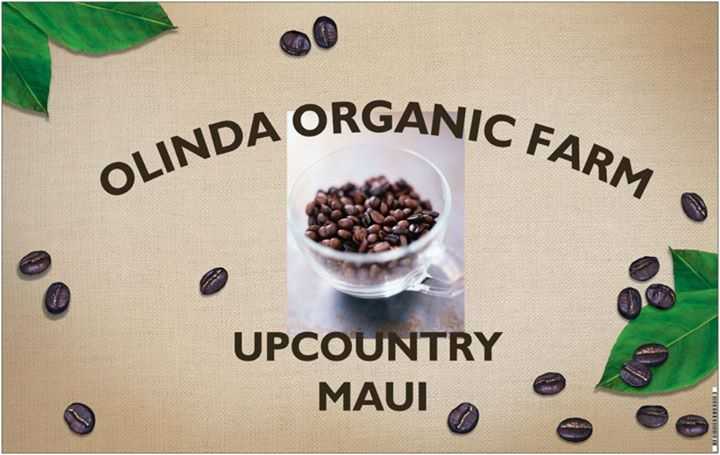WAIKAPU, Hawaii, U.S. — Move over, Kona. Maui coffee is getting much stronger. Maui made history for winning best overall coffee in Hawaii on Friday, and consumers and farmers were buzzing about the robust industry at a local coffee celebration Saturday.
Among 107 entries, Olinda Organic Farms earned the prestigious Hawaii Coffee Association top coffee award Friday.
Hawaii Island has dominated the state cupping competition since its inception nine years ago.
This time, Maui, by percentage, took more top 10 places than any other district, according to Rob Lind, who owns Olinda Organic Farms with wife Marsha.
“We are still in shock,” said Rob, who sold out of coffee Saturday. “It’s an honor to be representing Maui.”
Lind, along with farmers from Kula Beans, Kupa’a Farms, MauiGrown Coffee and Maui Mountain Coffee, were featured Saturday at the Maui Seed to Cup Coffee Festival at Maui Tropical Plantation.
The public celebration, which drew caffeine lovers from around Hawaii, capped four days of coffee events organized by the HCA and Maui Coffee Association.
Hawaii, thanks to its lush vertical landscapes, is the only state in the U.S. to grow commercial coffee, and its coffee bean history dates back hundreds of years.
There are 6,000 acres under cultivation in the state, with annual production between 7 million and 8 million pounds.
Maui’s commercial farms and smaller coffee estates comprise more than 50 coffee farms and 500 acres in Kaanapali, Haleakala and Hana and other areas. Next to seed corn, coffee is the No. 2 crop in the state, according to the HCA.
The Valley Isle industry is vibrant, leading local farmers said Saturday at the annual expo. And despite challenges such as the bean’s destructive coffee berry borer beetle and lack of affordable real estate, growers are confident that the future of Maui coffee is bright.
“We’re just scratching the surface,” said Gerry Ross, an organic farmer with Kupa’a Farms. “This industry is lasting.”
Growers attribute the caliber of Maui’s coffee to high growing standards, along with collaborative efforts among farms.
Tama Brandeburg, who owns Kula Beans with husband Donald, said Maui is the only district to oppose lowering state Department of Agriculture growing standards aimed to aid farmers struggling with the coffee berry borer.
“I think we need to promote the highest quality possible because we have premium coffee,” Tama Brandeburg said.
The coffee berry borer is one of the most devastating coffee pests and is found in nearly every coffee-growing region in the world, according to the ag department website. The beetle bores into cherries to lay eggs. The larvae then feed on the bean, reducing both yield and quality.
Earlier this month, the department reported a coffee berry borer infestation in East Maui. The pest has also hit crops on Hawaii Island and Oahu. But if Maui residents are diligent, the beetle population can be caught early and controlled, experts say.
“Everyone has preventative measures, which include monitoring the flow of people on their farms, educating people about changing their clothes, field sanitation practices, strip picking so there’s nothing left on the tree and regular monitoring. If you see something, report it,” Tama Brandeburg said.
She said that the coffee growers association has held regular educational workshops and farmers have access to university researchers and other experts.
“Maui is really on top of it,” she said. “Unfortunately, it’s not a matter of if (the beetle strikes), it’s a matter of when, because it’s nature.”
Growers such as Ross are also concerned about the high price of real estate. He said he was looking at 20 acres recently but it was selling for $1 million.
“That’s the problem of farming on Maui where real estate is so expensive,” he said. “You either have to move into family that has land or forget it.”
A sign of hope is Act 116, signed into law July 10, which will help MauiGrown Coffee expand its West Maui plantation to fallow sugar cane lands. The state will issue special purpose revenue bonds for as much as $13 million to finance the cultivation of between 500 to 1,000 acres of land in Omaopio Road area. Private investors would buy the bonds and receive tax-exempt interest payments.
“I would be able to potentially have another service for people who want to grow coffee,” said James “Kimo” Falconer, a former director of agricultural research for Pioneer Mill who established MauiGrown in 2003. “It could be really big if people want to jump on.”
Falconer said he is currently working on developing a business plan with landowner Alexander & Baldwin.
“Everyone is very excited,” he said. “Coffee is a vibrant, big market. There is high demand (worldwide) and lack of supply.”
Kehaulani Cerizo


















